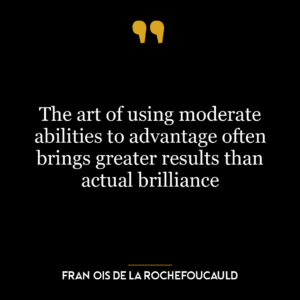This quote is a profound reflection on the nature of effort, outcomes, and the role of destiny or providence. It suggests that there is a preordained time for everything in life, and we, as individuals, do not have the power to control or command these outcomes. We can only control our actions, our efforts, and our determination to strive towards our goals.
The first part of the quote, “Providence has its appointed hour for everything,” refers to the belief that there’s a divine plan or destiny that dictates the timing of events in our lives. This concept is often associated with patience, acceptance, and faith. It’s about understanding that things happen when they’re meant to, not necessarily when we want them to.
The second part, “We cannot command results, we can only strive,” emphasizes the importance of effort and perseverance. It implies that while we can’t control the outcome, we can control our actions. It is a call to focus on the process, rather than the end result, and to continue striving, regardless of the challenges we face.
Applying this idea to today’s world or personal development, it encourages us to focus on what we can control – our efforts, attitudes, and actions, rather than stressing over outcomes that are beyond our control. In a world that’s increasingly obsessed with instant gratification, this quote is a reminder to be patient and persistent, and to trust in the timing of our lives.
For instance, in the context of personal development, one may be working hard to develop a new skill or achieve a personal goal. However, progress might be slower than expected, leading to frustration. This quote would suggest that instead of focusing on the slow progress (the result), one should concentrate on the effort being put in (the strive). Ultimately, the result will come when the time is right, as per providence.
In a broader societal context, this quote can be applied to social change movements. Change often takes time and the desired results may not be immediately visible. However, consistent effort and perseverance can eventually lead to significant shifts. The key is to keep striving, even when results are not immediately visible.






